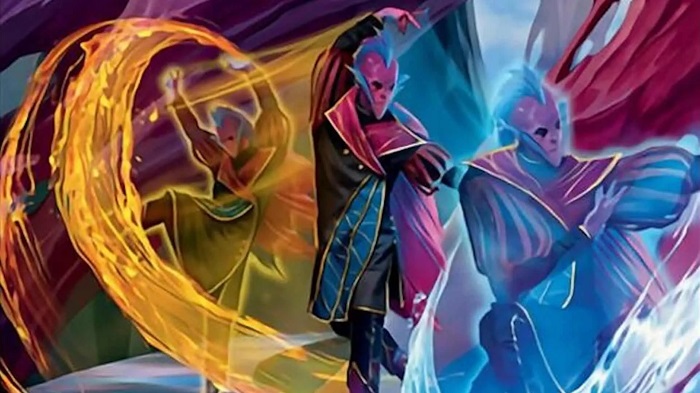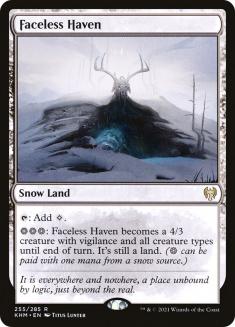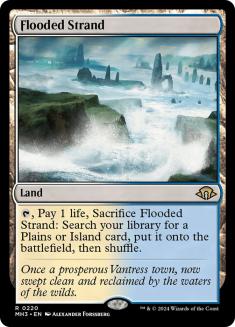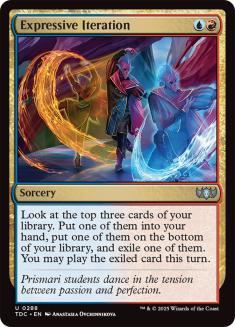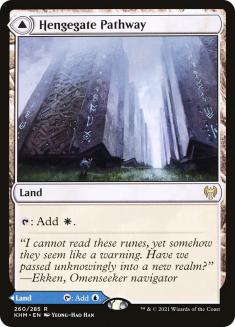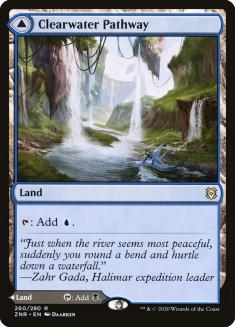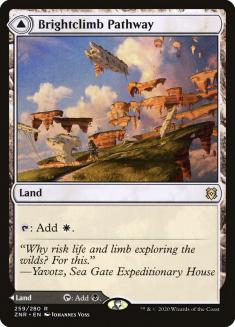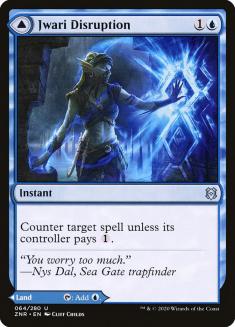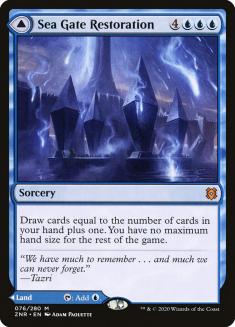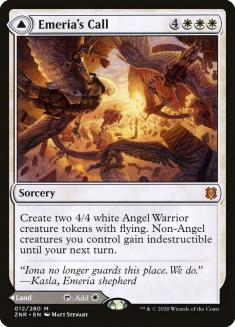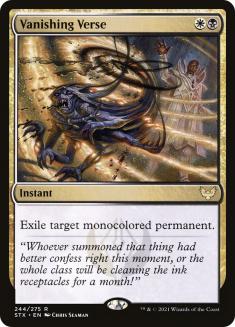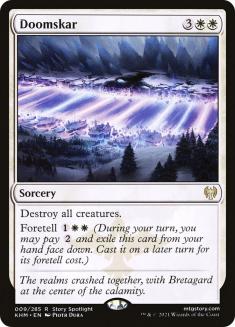There are many reasons why Magic is the greatest collectible card game in the world. The gameplay is fantastic, the flavor is off the charts, and the card design is intriguing, but the construction of competitive formats is what has kept me hooked for over twenty years. Without clearly defined formats, Magic may have remained at the kitchen table.
Competitive Magic is a spectrum, with local tournaments on one side and the Pro Tour on the other. Many players reading this article have no intention on playing in a Regional Championship Qualifier but look to content creators for assistance in taking down local events that are important to them.
A few years ago, most of these events were Standard.
The Fall of Standard
Standard was the format of choice for tournament organizers, as it was the format with the lowest price point entry and the most popular among players from all walks of life. This all came crashing down after the Play Design team injected a few grenades into the format, requiring banning after banning to repair. This sequence, combined with a pandemic that shut down local play, pushed the player base away from Standard and into the arms of Modern.
Modern does not rotate like Standard, making it the saving grace for players who wanted a safer investment. For players who bought into it already, most of the purchased cards have significantly increased in value. Standard always had that drawback, but the additional fear of constant bannings and a lack of local events firing, it fell in favor.
The Rebirth of Standard
Fortunately, Standard is slowly making a comeback with some help from MTG Arena. I have noticed more players talking about their Friday Night Magic returning to Standard, and I even expect the next Pro Tour to follow suit. Standard, as unhealthy as it has historically been, regains its composure after a rotation. With that rotation upon us, it would make perfect sense for Wizards of the Coast (WotC) to showcase their new and revitalized Standard on their professional stage.
There is a possibility that WotC does not take this route and abandons their trademark format. I find that to be unlikely, as it assists in much more than filling tournament seats. Commander is bringing in the trucks full of cash; however, local game stores made a decent living off selling sealed product to those interested in playing a low-entry format. Standard is still the only cheap option for players to get their competitive feet wet, and I would be shocked if WotC squanders this upcoming opportunity.
Control and the Standard Rotation
In preparation for that possibility, I have been examining the state of control when rotation hits in September. This is always the most exciting time for deckbuilders like me, sifting through the control staples that remain while looking to future sets to fill the gaps left behind by ones that leave.
I usually do this a few weeks before rotation, to have some previews already at my disposal. This article will be one of many, preparing us all for the resurrection of competitive Standard. It has been too long for those of us who are not constantly engaged with MTG Arena. With four sets rotating out at once, it is important to analyze what is being lost and what will be needed for control to be successful soon.
Soft Ban: Expressive Iteration
The single biggest rotation loss will be Expressive Iteration. This card draw spell was a mistake to print, one of many errors over the last few years. It has been banned in Pioneer, but I knew WotC would not touch it in Standard. Rotation has historically been a protective measure against oppressive cards. With the drop in the format’s popularity and its exit on the horizon, it makes sense that WotC would wait this one out.
The exit of Expressive Iteration will cripple Izzet-based control for the foreseeable future in Standard. This effect of rotation is easy to predict, since it is the only glue holding Jeskai and Izzet Control together. There are other elements of those control decks rotating as well, but their importance pales in comparison.
The Iteration Effect
Expressive Iteration is much more than a card draw spell for control. It deteriorates gameplay in a subtle way, pushing players out of every non-Izzet shell based on its absurd power level. The consistency and card advantage it produces, for only two mana, defies any attempt to ignore it. I tried with Esper and Azorius Control, and had some success, but it became obvious that Izzet was the clear best choice.
Since the SCG Invitational tournament last year, playing other control variations has felt underpowered, and it remains the best deck in the format today. Over 25% of the online metagame is Izzet-based, using Expressive Iteration. Even though most decks in this category are considered control, this rotation is desperately needed to defeat this card. I will not mourn the loss of Expressive Iteration and I hope to see it removed from competitive play across the board.
Other Losses from Rotation
With the big one out of the way, the other losses from rotation hit home. The sadness from losing cards has its counterbalance in the excitement of a fresh metagame. I will enjoy these cards until they exit the Standard stage in September, and I am confident that control will be remain an effective strategy.
The list of cards leaving is extensive; however, only a few directly impact control’s success. I am optimistic with this group because there is usually a defining card that has that irreplaceable feeling to it. Luckily for us, many of those cards are recent prints that will stick around until September of 2023. I will continue to go down the list in order of importance, starting with the group of cards always addressed at rotation.
Mana-Fixing
The Pathways are leaving us, and that does bring a solid tear to my eye. I love this cycle of mana-fixing in Standard and I use the cards regularly in Historic and Pioneer. The downside to these lands is minuscule and they have been instrumental in providing us complex mana combinations to cast multicolor spells on curve.
I am sure more mana-fixing is to come, since that has been the trend for the better part of a decade. There was a time where Standard formats were reduced to a few lands that enter the battlefield tapped and that was it. These two-color formats were less interesting and often resulted in stale metagames. It is a good move to continue the influx of mana-fixing lands, especially those that have use outside of just Standard.
It is difficult to speculate on the future colors of control without the assistance of Pathways. I anticipate some help from the newest set; however, the requirements of a three-color control deck differ from year to year. We may need a light splash for the third color to be effective, or each color may demand a heavy investment.
With the mana-fixing that remains, there is hope for both Azorius and Esper Control. Not only do we keep lands like Raffine’s Tower and Shipwreck Marsh, the creature and discard lands also remain. Having Hall of Storm Giants and Otawara, Soaring City brings me joy, and I look forward to a fresh format to see what they are still capable of.
Spell-Lands
Keeping Otawara is great, but the spell-lands will be no more. Jwari Disruption sees the most use out of the control options; losing that will hurt control across the board. I typically employ two copies in each Standard control deck, and it has overperformed on a regular basis. The low cost of playing a land that enters the battlefield tapped is worth its disruption effect. Two-cost counterspells are not common in Standard, especially ones like Jwari Disruption. Having the ability to take out a spell in the early- and mid-game, while having it as a possible land drop, made it a memorable addition to control’s rich history.
Although Jwari Disruption was the best of them, I will miss Sea Gate Restoration the most. I have not sleeved up this mythic spell-land in months, but I still love the card. There have been too many lands that surpass its power level, leaving it to gather dust for all eternity.
Before broken cards like Hall of Storm Giants and Otawara were released, I defended this legend against the sea of haters out there. It was ridiculed as a “seven-mana Opt” by renowned players and was labeled as the worst of the series. History will show that it was much better than that, even rising to the top here and there. It is currently selling for $19.99, while Emeria’s Call remains a solid $5.99. Rest in peace, my epic card draw spell, and I will see you in every Commander deck I construct.
Removal
Out of the rotating cards, Vanishing Verse is the spell I feel the sorriest for. Its power level is off the charts, but it became a victim to the worst color combination in Standard since it arrived. Orzhov has been unable to effectively attach to a third color, which is especially depressing for Esper Control enthusiasts like myself. It should have been a dominant force, easily landing as one of the top removal spells ever to grace the Standard format. Instead, it was barely used and will exit in the same darkness it has existed in for all this time. I point some blame at the abandonment of Standard, but most goes to Expressive Iteration.
Expressive Iteration made the one-for-one game a failing strategy in Standard. In older formats, the win conditions and threats can overpower card advantage. Therefore, strong removal, followed by a powerful battlefield presence, could easily defeat the player who cast an Expressive Iteration into a Memory Deluge. In the current Standard, that dynamic does not exist. Playing a black-based deck with a pile of removal got me into an SCG Invitational Top 8; however, my Standard record going in was 4-3-1. Without an 8-0 Modern record, my control deck with black cards would have crumbled against the sea of Izzet advantage.
Vanishing Verse is an innocent bystander, hurt by the collateral damage that Expressive Iteration caused. They leave together, but future removal in Standard will now be able to thrive.
Sweeper
The final card to pay respects to is Doomskar. Losing this sweeper does make me nervous, but I am thankful that there are alternatives for us to choose from. Doomskar is another card that was criminally underplayed but has picked up significant steam in recent events. Most control decks I see are running three or four copies. This brings me a great deal of joy, especially after my campaigns to promote it during preview season.
Doomskar is still one of the best sweepers that we have seen in Standard in many years. It can be a three-cost mass removal spell, taking out an army of creatures a turn earlier than its typical competitors. I’ll miss this effect, and the slightly weaker options may hurt control’s chances in the early- and mid-game. In the late-game, Farewell will continue to carry the sweeper torch, as it eradicates more than just creatures.
The combination of Doomskar and Farewell was too short-lived; however, it looks like WotC finally gets it. Their embargo on strong four-cost sweepers is over. I foresee a nice companion to join Farewell post-rotation.
Overall, control’s chances look strong, and this list is not too daunting. I look forward to preview cards to fill some of the gaps and to build a deck for this fresh, new metagame in September.

